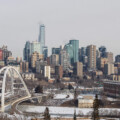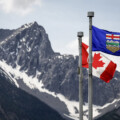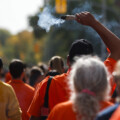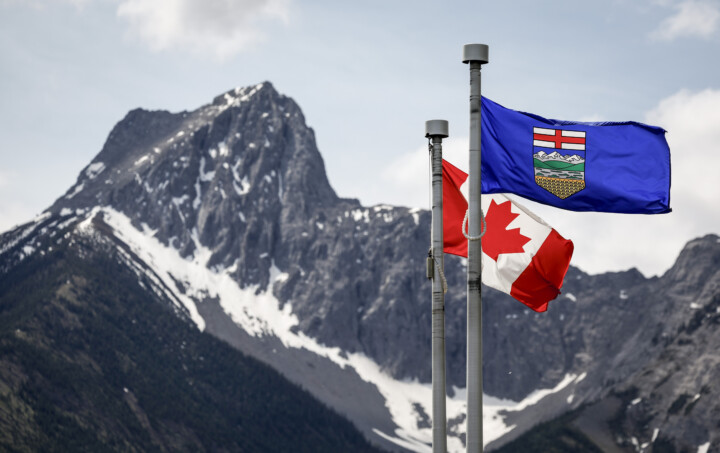Let us step back, take a deep breath, and think about the events that have transpired in Canada over the last six weeks. We have seen a grassroots political movement form, ostensibly against mandated vaccine requirements, but quickly morphing into a wider movement questioning the government’s response to the Covid-19 pandemic, the intrusion of the state into the daily lives of Canadians, and, more generally, the critical issues of freedom, choice, and the exercise of power in a democracy.
Regardless of one’s views on the truckers’ message, or their messaging, they have garnered considerable support amongst a substantial minority of the Canadian population. This truckers’ group—broadly speaking since it was far from a coherent body—blocked bridges and border crossings, and occupied downtown Ottawa for over three weeks. Their libertarian-inspired views and concerns with state-over reach have now entered the political sphere—where it belongs—via the Conservative Party, as its current leadership turmoil illustrates. The blockades of key infrastructure are gone, and the occupation of Ottawa is over.
And nobody died. There were no serious injuries or physical violence. There was no rampant lawlessness, no rioting, no looting, and there were very few arrests. Ottawa residents were inconvenienced as were others related to the obstruction of transit conduits, but it was all orderly and peaceful. This is nothing short of a miracle. This is due to the discipline and organization of the protesters themselves and, most critically, to the professionalism and restraint demonstrated by the on-the-ground police forces—they are to be lauded. The final efforts to clear Ottawa of protesters were methodical with very few violent confrontations.
The occupation of Ottawa and the blocking of key infrastructure had to come to an end as it is unreasonable for a group to dictate to an elected government its policy; an indefinite occupation of downtown Ottawa was also not viable, and it had to come to an end. Which it did. If this is what an “insurrection” looks like in Canada, we are doing well. Such a fact illustrates the ability of Canada’s public institutions to mitigate and manage conflicts between groups and to resolve such differences in a peaceful manner.
Such success of the state apparatus compensates for a total failure of leadership, as responsibility for these events ultimately lies with the polarization and hypocrisy of our politics. The government largely tolerated railway and pipeline blockades in 2020 and continues to ignore lawlessness in other parts of the country, including an organized attack on construction equipment in northern British Columbia. At one point Prime Minister Justin Trudeau joined a protest movement on Parliament Hill. The government has been intolerant of dissenting views, and instead of engaging with such perspectives, has denigrated both dissenters and their messages. If we wish to lecture other nations, such as China, to engage with peaceful protests, we must not fail to do the same here. Much of this could have been avoided had the prime minister walked to Parliament Hill and listened to these people and their concerns.
The Covid-19 pandemic has exacerbated divisions within our society, particularly along class and occupational lines. For those of us with white-collar, work-from-home jobs, often ensconced in the public sector, the pandemic has been tolerable, and sometimes even enjoyable. Business can often be conducted while in pajamas and slippers. For others, especially working-class individuals in the service sector, it has been more difficult. Those who have kept their jobs have stayed in their usual workplace and taken on personal and health risks in doing so. Moreover, most of the lockdown-related job losses occurred amongst working Canadians. The working-class dynamic of this protest, and the intolerance shown to it, is evidence of these cleavages and, at the same time, have exacerbated these divisions.
Mainstream Canadian media has consistently denigrated these protesters and taken considerable pains to highlight radical, fringe elements, which are not representative of the movement as a whole. Media coverage of it, very generally, has differed considerably from the reporting afforded to past protest movements. The government’s blocking of their funding, and the media’s publication of leaked donor lists, obtained illegally, further illustrates the divergent treatment towards various protest groups. Ultimately, the truckers were tired of being told what to do and how to think by a relatively privileged, urban, educated group of elites who, while ostensibly preaching tolerance, are wholly intolerant of views that differ from their own. This movement, and the government’s response to it, illustrates how well, or not, we tolerate minority perspectives—especially those that are not comfortably “progressive”.
There are some important lessons here to be learned by all potential protest movements. These truckers were very effective. They were able to (briefly) seize territory because trucks are valuable protest tools: they are big, they can block things, they are hard to move, and you can live in them, even in the middle of winter. They had effective logistical systems and significant financing; they were able to keep their BBQs and dance parties going. Such organization, and their presence at the doorstep of Parliament, was humiliating to the Liberal government. The use of the Emergencies Act, then, should be seen as a great compliment to this movement; they were exerting enough real power to generate a response—heavy-handed as it was—from the Canadian government. The tools afforded by the Emergencies Act were not required to manage other protests. While future protest groups can and should learn from the effective tactics of the truckers, at the same time, they must be wary that such draconian measures could now be used on them.
And what happens if another like-minded group draws on these tactics and is joined by thousands of newly unemployed civil servants to stage renewed demonstrations—a plausible scenario given the financial pressures we face—but this time in the middle of the summer? Shutting them down may be an even harder task. Hopefully by then we will have learned some lessons on tolerating different groups and their views.
Recommended for You

Calgary and Edmonton had highest growth of major Canadian cities in last four years as Toronto slowed: Statistics Canada

Canada’s EV deal with China could hand nearly $1 billion to Chinese automakers from federal credits, experts warn

Alberta Firewall: How the Alberta Agenda went from fringe to mainstream in 25 years

Party animal: A fascinating and frustrating look into the life of Pierre Trudeau’s political advisor




Comments (0)